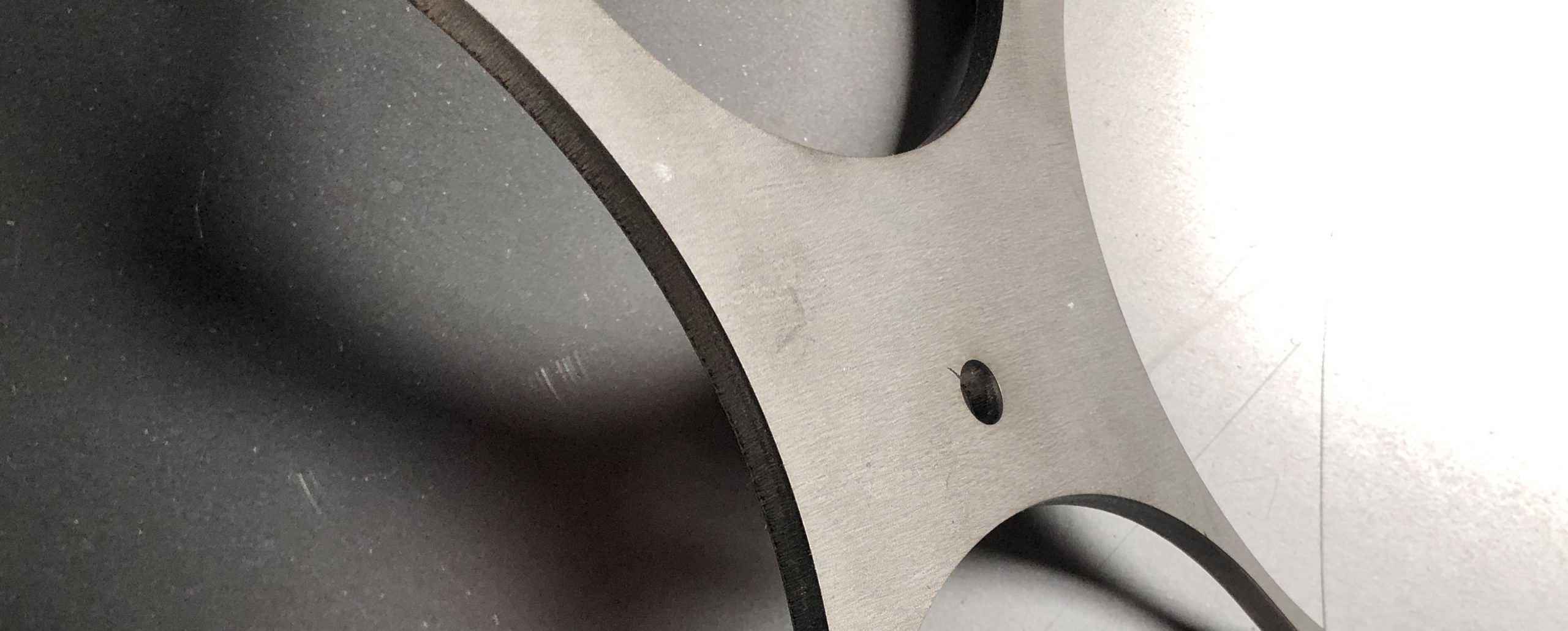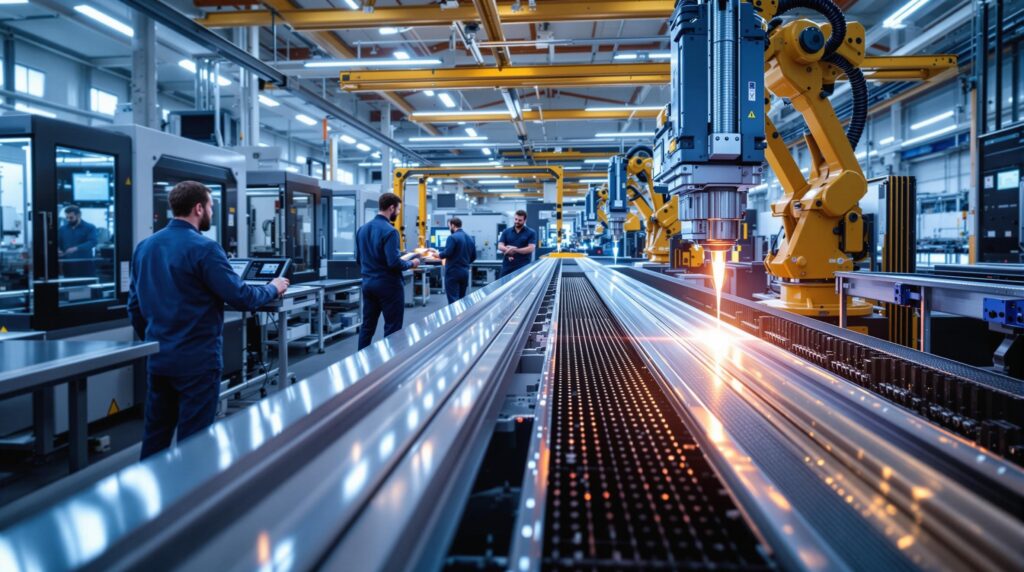Innovations in Aluminum Busbar Fabrication: Technology in Aluminum Bus Bar Manufacturing
AP Precision Metals is at the forefront of innovations in aluminum busbar fabrication, leveraging cutting-edge technology to enhance the efficiency and performance of electrical systems. Their commitment to precision and quality drives them to develop advanced manufacturing techniques that meet the evolving demands of the industry. Discover how their state-of-the-art processes set new standards in aluminum bus bar manufacturing, ensuring reliability, durability, and optimal conductivity in every application.
Innovative Technology in Metal Fabrication of Aluminum Busbars
AP Precision Metals prides itself on leveraging innovative technology in the metal fabrication of aluminum busbars. Their advanced busbar technologies incorporate state-of-the-art bending machines and comprehensive bending technology to ensure precision and efficiency in busbar fabrication. Aluminum busbars are essential in modern electrical systems, and their commitment to innovation ensures they stay at the forefront of the industry. By utilizing hydraulic systems for precision digital control, their process guarantees that each aluminum busbar meets the highest quality and performance standards.
From the initial design to series production, the metal fabrication techniques are tailored to meet the unique requirements of each project. Their advanced bending technologies and busbar benders are optimized to handle various specifications, making aluminum busbars adaptable to diverse applications. This flexibility is crucial in helping them meet the ever-evolving demands of clients, ensuring that their aluminum busbar technology remains ahead of the curve.
Incorporating advanced busbar technologies in the fabrication process allows for unparalleled accuracy and consistency in the production of aluminum busbars. Hydraulic systems integrated with precision digital control offer superior handling and manipulation of materials, leading to fewer defects and higher overall quality. As a result, the aluminum busbars are efficient, reliable, and durable.
In conclusion, AP Precision Metals continues to innovate in the field of aluminum busbar fabrication through the use of cutting-edge technology and advanced bending techniques. Their ongoing efforts to enhance the fabrication processes underscore their dedication to providing top-quality products. Stay tuned for the next discussion on “The Role of Cold Spray in Bus Bar Design and Fabrication; Comparing Aluminum Busbars to Copper Bus Alternatives in Fabrication,” where they will delve deeper into the intricacies of busbar technology.
The Role of Cold Spray in Bus Bar Design and Fabrication
In the evolving landscape of aluminum busbar fabrication, the cold spray system has emerged as a groundbreaking technique, significantly enhancing the manufacturing process of aluminum busbars. This innovative process allows for superior new bus bar designs that previously were not feasible with conventional methods. AP Precision Metals has integrated cold spray technology into their fabrication practices to provide robust and reliable aluminum busbars.
The cold spray system involves propelling fine aluminum particles at high speeds onto a busbar surface, resulting in a superior bond without needing high-temperature processing. This cold spray method enhances the mechanical properties of the aluminum busbars and maintains the integrity of the bus’s core design. This is particularly advantageous in the technology-driven sectors where maintaining material properties is crucial.
With the incorporation of cold spray techniques, AP Precision Metals is pushing the boundaries of what’s possible in busbar fabrication. Their innovative focus on aluminum busbars means that they are committed to pioneering new bus bar designs that meet and exceed industry standards. This advancement in technology ensures that each busbar they manufacture delivers optimum performance, longevity, and reliability.
The role of cold spray in busbar design and fabrication can’t be overstated. It impacts everything from the initial design phase to the final product, resulting in aluminum busbars that are light and exceptionally strong. By leveraging the cold spray system, they are able to introduce designs that push the limitations of traditional busbar fabrication methods. AP Precision Metals is dedicated to continually refining their approach to aluminum busbar manufacturing, utilizing cutting-edge technology to deliver unparalleled quality in every piece they produce.
Comparing Aluminum Busbars to Copper Bus Alternatives in Fabrication
When comparing aluminum busbars to copper, several factors come into play that influence their use in busbar fabrication within the electrical industry. Aluminum busbar technology has evolved significantly, making it a compelling choice for many manufacturers. While copper has traditionally been sought after for its excellent electrical conductivity, aluminum busbars offer several advantages, including lighter weight and cost efficiency. Utilizing aluminum busbars in your busbar production process can help reduce material costs, making it a more economical option. As a leading manufacturer, AP Precision Metals leverages cutting-edge technology to fabricate aluminum busbar systems that meet stringent electrical performance standards.
In today’s news within the electrical manufacturing sector, there is a growing trend toward using aluminum bus alternatives due to their fabrication capabilities. Engineers and electricians often prefer aluminum busbars because they ensure reliable bus connections inside electrical panels more efficiently. Advanced technology has enabled the aluminum busbar production to adopt sophisticated methods like cold spray, which enhances their mechanical and electrical properties. Such innovations play a significant role in the busbar manufacturing process, offering tailored solutions that meet specific electrical requirements.
Although some may argue that copper is superior due to its higher conductivity, the difference in performance is often negligible in practical applications. AP Precision Metals understands that the decision between aluminum and copper busbars depends largely on the specific needs of each project. Their expertise in busbar design and fabrication enables them to guide clients through the decision-making process, ensuring that the chosen metal meets their electrical and cost criteria. By staying updated with the latest advancements in metal fabrication, they continue to provide high-quality aluminum busbars that set new standards in electrical bus solutions.
AP Precision Metals prides itself on leading the industry in innovations in aluminum busbar fabrication. The cutting-edge technology and dedicated team ensure the highest quality in aluminum busbar manufacturing, providing superior performance and reliability. By continuously advancing their processes, they remain at the forefront of the market, offering tailored solutions to meet the specific needs of clients. Trust AP Precision Metals for unparalleled expertise and excellence in aluminum busbar production.
FAQs
Q: What technological advancements have AP Precision Metals integrated into aluminum busbar fabrication?
A: AP Precision Metals has integrated cutting-edge technologies such as advanced bending machines, comprehensive bending technology, and hydraulic systems with precision digital control. These innovations ensure the highest standards of quality, efficiency, and performance in the aluminum busbar fabrication processes.
Q: How does AP Precision Metals ensure the reliability and durability of its aluminum busbars?
A: Their aluminum busbars are crafted using advanced fabrication techniques, including cold spray technology and precision bending. These methods enhance the mechanical and electrical properties of the busbars, ensuring their reliability, durability, and optimal conductivity in various applications.
Q: What is cold spray technology, and how does it benefit aluminum busbar fabrication?
A: Cold spray technology involves propelling fine aluminum particles at high speeds onto a busbar surface, creating a superior bond without high-temperature processing. This method maintains the material’s integrity and enhances the mechanical properties, allowing for innovative busbar designs that surpass traditional fabrication methods.
Q: Why should manufacturers consider aluminum busbars over copper alternatives?
A: Aluminum busbars offer several advantages over copper, including lighter weight and cost efficiency. While copper has excellent electrical conductivity, the performance difference is often negligible in practical applications. Additionally, aluminum’s reduced material costs and advanced fabrication capabilities make it a compelling choice for many manufacturers.
Q: How does AP Precision Metals tailor its aluminum busbar fabrication processes to meet specific project requirements?
A: From initial design to series production, the fabrication techniques are customized to meet each project’s unique specifications. Their advanced bending technologies and busbar benders handle varied requirements, ensuring that the aluminum busbars are adaptable to diverse applications. This flexibility helps them meet the evolving demands of clients and maintain their position at the forefront of the industry.


